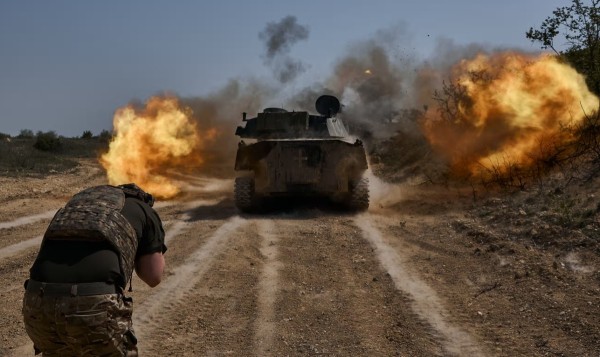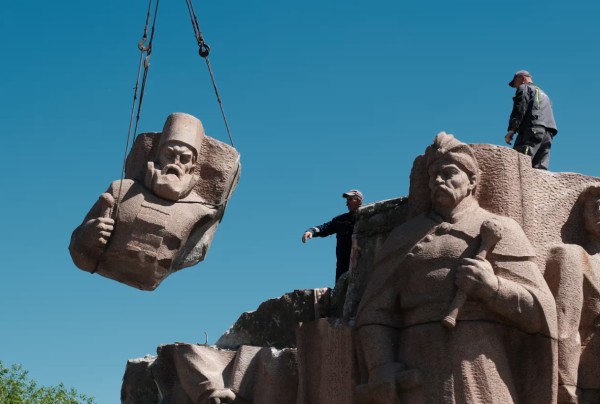Statement by the President of Estonian Jewish Community
Mrs Cilja Laud
OSCE Conference on Anti-Semitism and on Other Forms of Intolerance, Cordoba, 8 and 9 June 2005
Mr Chairman,
Distinguished participants of the Conference,
Ladies and Gentlemen
Unfortunately, I am not able to participate in the work of the Conference as a Member of the Estonian Delegation for personal reasons.
However, I decided to inform you in written form about the situation concerning Anti- Semitism in my small country – Estonia. It is easier for me to do that, because I am neither the Minister of Foreign Affairs nor a diplomat – which means that I can be more outspoken.
First of all, I would like to confirm again that there has never been Anti-Semitism at the state level in Estonia. Even during the Soviet times, many distinguished scientists, poets, musicians and economists moved from the USSR to Estonia, among them Juri Lotman, David Samoilov, David Oistrahh and others.
Still, it has to be noted that sometimes acts of Anti-Semitism take place on an everyday level – but this happens in every country. All the cases - be it the incident with the Lihula monument, articles in a newspaper or the vandalizing of War Monuments on Victory Day - have been condemned by the Government and appropriate measures have been undertaken.
We cannot live and raise young generations only on negative examples. Estonians are learning to understand the sufferings of other peoples. History is not black and white; history is colourful. Victory Day is a very important day for the Jewish people in the whole world. In Israel, it is celebrated at the state level.
I would like to inform you that this year on May 8, Estonian Prime Minister Andrus Ansip laid a wreath at the memorial cite of victims of the Holocaust located in Klooga and apologized before the Jewish people for those Estonians who participated in murdering and assisted the perpetrators of most grave crimes against humanity.
Having said that, I would like to bring some positive examples to illustrate the life of Estonian Jews – because life goes on: we have to remember the atrocities of the Holocaust and honour the victims; we have to continue efforts to exclude such a horrible tragedy in the future.
I think that we are the only Jewish Community in the whole world that does not have and does not need security measures. We have a State sponsored Jewish High School and kindergarten. We have a Synagogue and we are building a new one. We organize seminars for teachers and school directors about the Holocaust and teaching methods. We are proud that President Arnold Rüütel and the Mayor of Tallinn visited our Community and lit the first Hanukah candle in December last year.
Our Jewish Community has branches in locations all over the country where Jews live. Our Community is much respected and honoured in Estonia. I have been invited and participated in several Conferences, including OSCE Anti-Semitism Conferences as a Member of Governmental Delegations.
As the Chairman of Jewish Community, I am personally a member of the President’s Round Table of National Minorities, where issues of the Holocaust have been discussed. In 1994, the Estonian Government allocated funds for the construction of Memorial Cites for the Victims of the Holocaust. In July this year, we will open five additional memorial stones (plaques) at the sites of concentration camps as was agreed within the framework of an agreement between Estonian and US Special
Committees.
Ladies and Gentlemen, that is why I would like to urge you not to make general conclusions about my country based on single negative incidents, but rather keep the whole picture in mind and appreciate what has been done and is being done by the small nation that also has a tragic and sad history.
Every Friday, Jews lit Shabbat candles not only in Israel, but also in Diaspora. I would like to wish us all, that the light of the candle will unite us all in the name of light and goodness. I believe that if we all start with ourselves the world could be changed into a better and more secure place to live. I very much want to believe in that. Thank you for your kind attention.
Cordoba
08.06.2005
Statement by the President of Estonian Jewish Community Mrs Cilja Laud (29)
Archived Articles | 28 Mar 2007 | EWR
Viimased kommentaarid
Kommentaarid on kirjutatud EWR lugejate poolt. Nende sisu ei pruugi ühtida EWR toimetuse seisukohtadega.
Uno, there's just one little problem with the German uniform; in the eyes of the world, it's never been considered to be a good look, nor is it likely to be so in the future. If you put the Bolshevik and Nazi symbols together, and did a random questionnaire as to what people considered to be the more antagonistic, then I think you would find the Bolshevik symbols come off second best. It's just the way the free world has taught it's children to appreciate ideological values, and it's fairly difficult to change this way of thinking.
To Toomas
and also to your other favourite "bull %@!#$& " commentators (Maxim, Maximus, Anonymous, etc.)
Thank you for asking one question that I could easily answer. In the rest of the garbage I could not find anything which deservs an answer. If it bothers that much who I am and what inspires me to write commentaries and articles (in Maxims words “What I want“ - believe me, nothing from any of you. )
Vt.“SS-sümbol stalinistide teenistuses", Uno Raudkivi, K&E 2/2005, Ik. 20 - 22
http://kultuur.elu.ee/ke480_SS...
“Nüüd üles, keda mundrineedus rõhub” , Uno Raudkivi, K&E 3/2005, Ik 14 - 17
http://kultuur.elu.ee/ke481_ra...
“Kas sõjaveteranid tohivad ‘väärtushinnata’ parteipoliitikuid?”, Uno Raudkivi, K&E 1/2007, lk 42 - 45
( this last article is not yet available Interneti vahendusel until K&E 2/2007 number tuleb välja.)
This problem of people losing capacity to think rationally when they happen to see an SS symbol or hear it mentioned, is, of course, not new. In Estonia, however, the stupefying effect of this emotion is magnified, because its society was programmed by the 40 years of stagnation-time(stalinist)-schooling (1950 -1990), to accept the necessity to perform the sacrficing rites of Estonian war-veterans who had been in combat-situations against the Red Army. Why?
1. Because many of these combatants had sworn to fight only the bolševiks (the Stalin’s Red Army).
2. Some into Stalinist-faith-turned politicians who still wield power in Estonia today may believe these rites would appease the supposedly “evel beast” of Putin’s Russian Federation.
Does anybody have a better idea which explains why they perform these sacrificing rites?
and also to your other favourite "bull %@!#$& " commentators (Maxim, Maximus, Anonymous, etc.)
Thank you for asking one question that I could easily answer. In the rest of the garbage I could not find anything which deservs an answer. If it bothers that much who I am and what inspires me to write commentaries and articles (in Maxims words “What I want“ - believe me, nothing from any of you. )
Vt.“SS-sümbol stalinistide teenistuses", Uno Raudkivi, K&E 2/2005, Ik. 20 - 22
http://kultuur.elu.ee/ke480_SS...
“Nüüd üles, keda mundrineedus rõhub” , Uno Raudkivi, K&E 3/2005, Ik 14 - 17
http://kultuur.elu.ee/ke481_ra...
“Kas sõjaveteranid tohivad ‘väärtushinnata’ parteipoliitikuid?”, Uno Raudkivi, K&E 1/2007, lk 42 - 45
( this last article is not yet available Interneti vahendusel until K&E 2/2007 number tuleb välja.)
This problem of people losing capacity to think rationally when they happen to see an SS symbol or hear it mentioned, is, of course, not new. In Estonia, however, the stupefying effect of this emotion is magnified, because its society was programmed by the 40 years of stagnation-time(stalinist)-schooling (1950 -1990), to accept the necessity to perform the sacrficing rites of Estonian war-veterans who had been in combat-situations against the Red Army. Why?
1. Because many of these combatants had sworn to fight only the bolševiks (the Stalin’s Red Army).
2. Some into Stalinist-faith-turned politicians who still wield power in Estonia today may believe these rites would appease the supposedly “evel beast” of Putin’s Russian Federation.
Does anybody have a better idea which explains why they perform these sacrificing rites?
Hard to believe you'd missed the line about President Rüütel.
Archived Articles
TRENDING




















